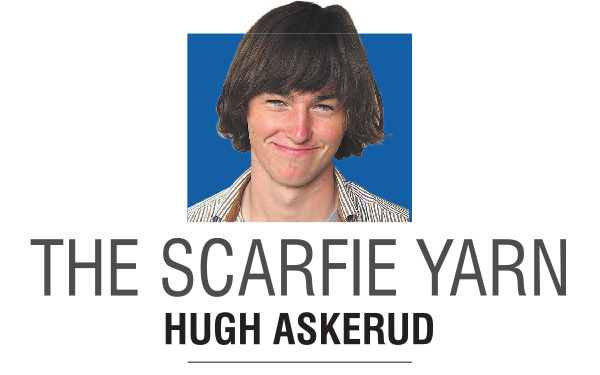
It was a sad time for me personally, having come to the end of something I had poured so much of myself into.
In so many ways my work at Critic shaped these columns, giving me the tools to discuss student culture from the very mechanism which reflects and shapes it.

Student journalism, community, and how people perceive the world through media.
It’s no secret that dissatisfaction with traditional media has led to people seeking new outlets. Student journalism is one of the major benefactors of this change.
We’re serious enough to report on issues which deeply affect a key community in our society, but also have the kind of editorial freedom which naturally lends itself to goofy antics.
Handily, this translates itself well to social media which is the kind of access you need when you don’t quite have the institutional weight of the ODT.
At the other end of the spectrum, you see the same kind of success that student journalism has garnered also being reflected in media outlets like the Platform.
Both student journalism and the Platform don’t claim to represent the "whole" like traditional media does, instead acting as a way for people to more readily engage with a kind of community-based media.
Problems arise, however, when people can’t see their experiences in the communal culture which media like student magazines promise.
In this sense, the success of student journalism and other forms of fringe media in recent years is a sign that we are on the knife’s edge as a democratic public.
People no longer see themselves in the societal whole that traditional media claims to represent.
Student journalism is the slightly more niche community-based media which people can turn to in order to find a version of themselves reflected.
Yet, what happens when fringe media fails? When it too is no longer able to reflect the experiences of those in the community it claims to reflect?
Unfortunately, social media lies in wait, a vicious beast which people can see themselves reflected in purely because the media is perfectly catered to their experiences.
Worse. Social media isn’t catered to reflect their experiences exactly, merely touching on the biological specificities which are a reflection of us at our weakest, at moments when we are least human.
And if all of our media is catered only to ourselves, people begin to perceive themselves not as one in many, but instead as a single isolated entity.
All of a sudden differences become heightened, not just in a factional way but on a microscopic, individual level.
That’s dangerous. It’s certainly a future I don’t want to see our society move towards.
Turns out my greatest fear in life isn’t heights but the disenfranchisement of the media which reminds us of our collective humanity.
My time in student journalism has made me all too aware of the dangers that await when we fail in our mission as journalists to reflect the collective experiences of people in our community.
On the other hand, if students get stuck in, reading Critic can be a gateway to reading the ODT and engaging with the wider public reasoning (a thought which would leave many of the staunch anti-ODT crew at Critic aghast).
Yet, it’s becoming such a hard task to engage.
Even the student community, which is generally pretty great at getting on board with stuff that’s outside of themselves, seems to be slipping further from Critic’s grasp.
Views of how the world works are constantly changing. It sometimes feels like these views are becoming increasingly individualised.
Sometimes people just don’t want to engage with the public space, a space outside of individual pursuit which reminds people of their collective humanity.
Yet the number of people active on public forums like Dunedin News and the number of stories I hear of good things being done for the community gives me hope that people do want to engage, even if it’s a bit hard at times.
Before this column starts to look any more like a MFCO (Media, Film and Communication) essay, I will simply say that the task of student journalism is an increasingly important one.
It can fundamentally change how people see the world and re-engages individuals with the public sphere when done right.
I am proud of my time reflecting, representing, and loving every bit of the student community at Critic.
• Hugh Askerud is a 20-year-old local and student at the University of Otago, majoring in politics and religious studies.














